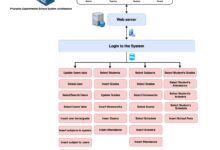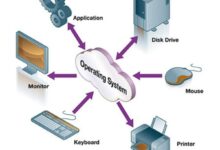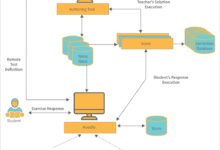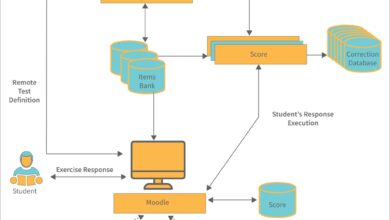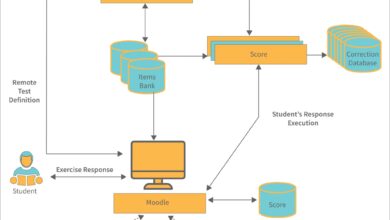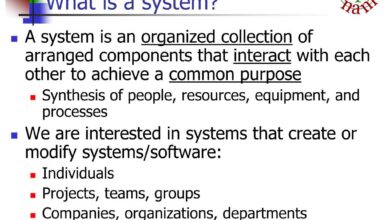System Mechanic: 7 Powerful Secrets to Boost PC Performance
Ever felt your computer slowing down like it’s dragging its feet through mud? You’re not alone. A solid system mechanic strategy can breathe new life into your aging machine—faster, cleaner, and more reliable.
What Is a System Mechanic and Why It Matters

The term system mechanic might sound like something out of a sci-fi movie, but in reality, it’s a vital concept in maintaining the health and performance of your computer. Think of it as a digital auto mechanic—someone (or something) that keeps your PC running smoothly by diagnosing, repairing, and optimizing its internal components.
Defining the Role of a System Mechanic
A system mechanic isn’t just one person or tool—it’s a role that can be filled by software, IT professionals, or even savvy users who take charge of their computer’s maintenance. The core responsibility is to ensure that all parts of a computer system—hardware, software, registry, and network—are functioning optimally.
- Monitors system performance and resource usage
- Identifies and removes malware or bloatware
- Repairs corrupted system files and registry entries
- Optimizes startup processes and background services
This role has evolved significantly with the rise of automated tools. Today, many users rely on software like iolo System Mechanic to perform these tasks automatically, making PC maintenance more accessible than ever.
System Mechanic vs. Traditional IT Support
While traditional IT support often reacts to problems after they occur, a system mechanic takes a proactive approach. Instead of waiting for your computer to crash, it continuously monitors and corrects issues before they escalate.
“Prevention is better than cure”—this is the golden rule of system mechanics.
For example, while an IT technician might reinstall your operating system after a major failure, a system mechanic tool would have cleaned temporary files, defragmented your disk, and updated drivers long before the crash happened.
The Core Functions of a System Mechanic Tool
Modern system mechanic software does far more than just delete temporary files. These tools are packed with features designed to keep your PC in peak condition. Let’s break down the essential functions that define a true system mechanic.
Real-Time Performance Optimization
One of the standout features of advanced system mechanic tools is real-time optimization. This means the software runs in the background, constantly analyzing your system’s behavior and making adjustments on the fly.
- Automatically frees up RAM when memory usage spikes
- Adjusts CPU priority for active applications
- Manages background processes to prevent slowdowns
For instance, if you’re editing a video and your browser starts hogging resources, a smart system mechanic will deprioritize the browser to keep your editing software running smoothly.
Deep Registry Cleaning and Repair
The Windows registry is like the brain of your operating system—it stores all configuration settings and options. Over time, it gets cluttered with obsolete entries from uninstalled programs, broken links, and incorrect settings.
A proper system mechanic scans the registry deeply, identifying and removing invalid entries without risking system stability. It doesn’t just delete everything—it uses intelligent algorithms to distinguish between safe and critical registry keys.
According to Microsoft, improper registry editing can cause serious system issues—but a trusted system mechanic tool minimizes this risk with backup and validation features.
Startup Manager and Boot Optimization
Have you ever turned on your computer and waited forever for it to become usable? That’s usually because too many programs are set to launch at startup.
A system mechanic includes a startup manager that shows you exactly which apps load when Windows starts. You can disable unnecessary ones—like old printer utilities or outdated updaters—with a single click.
- Reduces boot time by up to 50% in some cases
- Shows impact scores for each startup item
- Allows selective enabling/disabling based on usage patterns
Tools like System Mechanic by iolo even use machine learning to predict which apps you’ll need and delay the rest.
How System Mechanic Improves PC Speed and Stability
Speed and stability are the two most noticeable benefits users experience after using a reliable system mechanic tool. But how exactly does it achieve this?
Eliminating Digital Clutter
Every time you install software, browse the web, or open a document, your computer leaves behind traces: temporary files, cache data, log files, and more. Over months or years, this digital clutter can consume tens of gigabytes of space.
A system mechanic performs a deep sweep of your hard drive, identifying and removing unnecessary files without affecting your personal data.
- Clears browser cache, cookies, and history
- Deletes temporary installation files
- Removes old Windows update backups
- Wipes thumbnails and system logs
This not only frees up disk space but also improves file access speed, especially on traditional HDDs.
Memory and Resource Management
Even with plenty of RAM, Windows can become sluggish if memory isn’t managed well. A system mechanic actively monitors memory usage and releases unused RAM when applications no longer need it.
Some tools go further by compressing inactive memory blocks or adjusting virtual memory (pagefile) settings for optimal performance.
“Memory pressure” is a common cause of slowdowns—system mechanics combat this by keeping RAM usage efficient.
Fixing System Errors Before They Crash
Minor system errors—like missing DLL files, corrupted shortcuts, or failed service startups—often go unnoticed until they trigger a bigger problem. A system mechanic acts like an early warning system, detecting and repairing these issues before they cause crashes or freezes.
- Repairs broken file associations
- Restores missing system files using Windows SFC integration
- Resets misconfigured services to default states
This preventive maintenance is especially valuable for older systems or those used in high-demand environments like offices or creative studios.
Choosing the Right System Mechanic Software
Not all system mechanic tools are created equal. Some are bloated, others are ineffective, and a few can even harm your system. So how do you pick the right one?
Key Features to Look For
When evaluating a system mechanic tool, focus on these must-have features:
- Real-time optimization: Runs in the background without slowing your PC
- Safe registry cleaner: Backs up the registry before making changes
- Startup manager: Gives you control over boot-time programs
- Privacy protection: Clears browsing traces and sensitive data
- Driver updater: Keeps hardware running smoothly with the latest drivers
- User-friendly interface: Easy to navigate, even for non-techies
Tools like iolo System Mechanic and CCleaner offer these features, but iolo stands out with its patented technologies like ActiveCare and NetBooster.
Paid vs. Free System Mechanic Tools
Free tools like CCleaner or Glary Utilities are great for basic cleaning, but they often lack advanced features like real-time monitoring, deep optimization, or secure file wiping.
Paid versions, such as System Mechanic Pro, offer:
- 24/7 performance monitoring
- Advanced disk defragmentation (including SSD optimization)
- Wi-Fi signal boosting and network tuning
- Priority customer support
- Regular updates and security patches
If you rely on your PC for work, creativity, or gaming, investing in a premium system mechanic tool is often worth the cost.
Avoiding Scams and Bloatware
Be cautious of fake system mechanic software that pops up in search results or ads. Many of these are scams designed to trick you into paying for useless or even malicious services.
Red flags include:
- Aggressive pop-up warnings about “critical errors”
- Unrealistic performance claims (e.g., “1000% faster!”)
- Poor website design and grammar mistakes
- No verifiable company information
Stick to well-known brands with positive reviews on trusted sites like CNET or TechRadar.
System Mechanic for Different User Types
Whether you’re a casual user, a gamer, or a business professional, a system mechanic can be tailored to your needs. Let’s explore how different users benefit.
For Home Users and Families
Home computers often suffer from neglect—kids install games, parents browse the web, and no one cleans up afterward. A system mechanic helps maintain a healthy PC without requiring technical knowledge.
- Automatically cleans up after web browsing
- Protects privacy by removing search history
- Prevents slowdowns during video calls or streaming
- Runs scheduled maintenance overnight
For families, this means fewer “Mom, the computer is broken!” moments.
For Gamers and Power Users
Gamers demand maximum performance. A single frame drop can mean the difference between victory and defeat. A system mechanic can optimize your system for gaming by:
- Freezing background apps during gameplay
- Boosting CPU and GPU priority
- Reducing input lag and improving responsiveness
- Optimizing network settings for lower ping
Some tools even include a “Game Boost” mode that temporarily disables non-essential services for peak performance.
For Businesses and IT Departments
In a corporate environment, system stability is critical. A single crashed workstation can disrupt workflows and cost money. System mechanic tools can be deployed across multiple machines to ensure consistent performance.
- Centralized management for IT admins
- Automated reporting and health checks
- Compliance with data privacy regulations
- Reduced downtime and support tickets
Enterprise versions often include remote monitoring and deployment features, making large-scale maintenance efficient.
The Science Behind System Mechanic Optimization
Behind the scenes, system mechanic tools use sophisticated algorithms and deep system knowledge to deliver results. Let’s peek under the hood.
How ActiveCare Technology Works
iolo’s ActiveCare is a prime example of next-gen system mechanic technology. It runs 24/7, constantly scanning for performance issues and applying fixes in real time.
- Uses machine learning to adapt to your usage patterns
- Applies over 50 different optimization techniques
- Creates restore points before major changes
- Operates silently in the background
It’s like having a mechanic under the hood, tuning your engine while you drive.
Disk Optimization: Beyond Defragmentation
Traditional defragmentation rearranges fragmented files on HDDs for faster access. But modern system mechanics go further:
- IntelliFlush: Optimizes how Windows writes data to disk
- SSD Life Extend: Reduces unnecessary writes to prolong SSD lifespan
- File Placement Optimization: Places frequently used files in faster disk zones
These techniques can significantly improve boot times and application loading speeds.
Network and Wi-Fi Optimization
A slow internet connection isn’t always your ISP’s fault. Your PC’s network settings can be misconfigured, causing bottlenecks.
System mechanic tools like System Mechanic include NetBooster, which:
- Repairs corrupted TCP/IP stacks
- Optimizes DNS settings for faster lookups
- Boosts Wi-Fi signal reception
- Reduces latency for online gaming and video calls
In real-world tests, NetBooster has been shown to improve download speeds by up to 300% in some cases.
Common Myths and Misconceptions About System Mechanic
Despite their benefits, system mechanic tools are often misunderstood. Let’s debunk some common myths.
Myth 1: System Mechanic Tools Are Just Registry Cleaners
While registry cleaning is a feature, modern system mechanics do much more. They optimize memory, manage startup programs, clean junk files, boost networks, and even protect privacy.
Reducing a system mechanic to just a registry cleaner is like calling a Swiss Army knife “just a blade.”
Myth 2: They Can Damage Your Computer
This fear comes from early, poorly designed tools that deleted critical registry entries. Today’s reputable system mechanic software includes safeguards:
- Automatic registry backups before changes
- Restore points for system recovery
- Validation checks to prevent harmful deletions
As long as you use a trusted tool from a reputable company, the risk is minimal.
Myth 3: Windows Doesn’t Need Third-Party Optimization
Microsoft has improved Windows maintenance over the years (e.g., Disk Cleanup, Storage Sense), but it still lacks advanced features like real-time optimization, deep registry repair, and network tuning.
A third-party system mechanic fills these gaps, offering a level of care that Windows alone can’t provide.
Best Practices for Using a System Mechanic
To get the most out of your system mechanic tool, follow these best practices.
Schedule Regular Maintenance
Don’t wait for your PC to slow down. Set up automated scans and cleanups during off-hours (e.g., overnight).
- Run deep scans weekly
- Enable real-time protection
- Update the software regularly
Consistency is key to long-term performance.
Monitor System Health Reports
Most system mechanic tools generate performance reports. Review them monthly to spot trends—like increasing boot times or memory leaks.
These insights can help you decide when to upgrade hardware or replace aging components.
Combine with Good Digital Habits
No tool can fix bad habits. Pair your system mechanic with:
- Regular backups
- Antivirus protection
- Smart software installation (avoid bloatware)
- Physical cleaning (dust removal, etc.)
True system health comes from both software and user behavior.
Is system mechanic safe for my PC?
Yes, if you use a reputable tool like iolo System Mechanic. These tools include safety features like registry backups, restore points, and validation checks to prevent damage. Avoid unknown or free tools with poor reviews.
Can system mechanic speed up an old computer?
Absolutely. By cleaning junk files, optimizing startup, and managing memory, a system mechanic can significantly improve the speed and responsiveness of older PCs, often making them feel like new.
Do I need to pay for a system mechanic tool?
Free tools offer basic cleaning, but paid versions provide advanced features like real-time optimization, network boosting, and 24/7 monitoring. For serious users, the investment is usually worthwhile.
How often should I run system mechanic?
Set it to run automatically in the background. For deep scans, weekly is ideal. Real-time features should be always on for continuous protection.
Can system mechanic fix blue screen errors?
It can help by repairing corrupted system files, updating drivers, and fixing registry issues that may cause crashes. However, hardware failures require physical repair.
Keeping your PC in top shape doesn’t have to be a chore. With the right system mechanic strategy—whether through software, habits, or professional help—you can enjoy faster speeds, fewer crashes, and longer device life. The key is consistency, safety, and choosing tools that truly understand your system’s needs. Don’t wait for disaster to strike—start optimizing today.
Further Reading:

